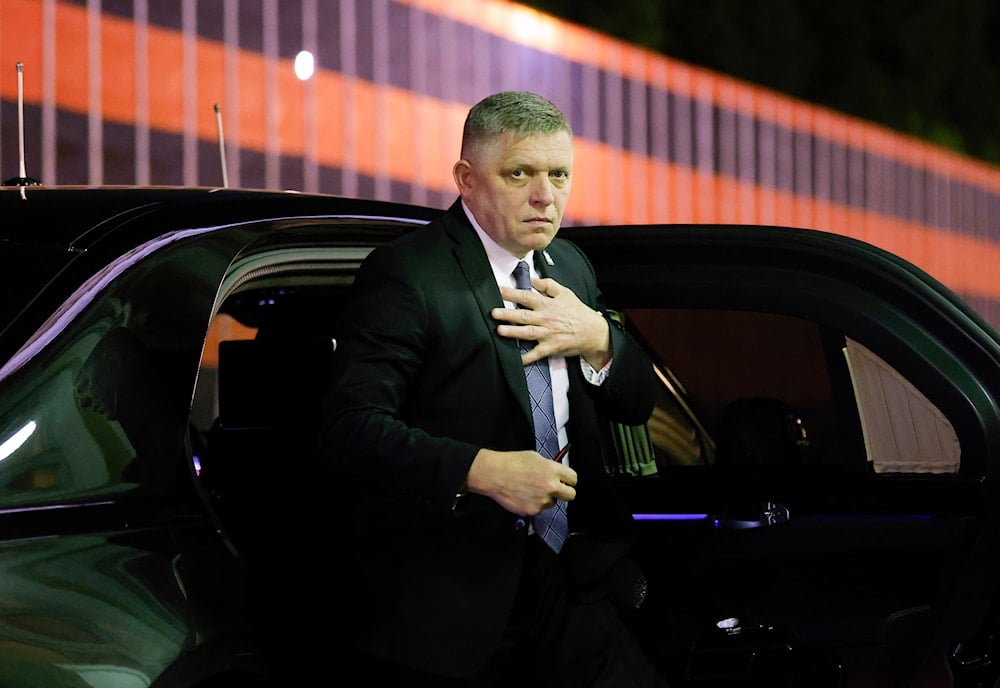Slovak PM derides EU attempts to keep him from Victory Day in Moscow
Slovak Prime Minister Robert Fico met Vladimir Putin in Moscow during the Victory Day parade, defying EU pressure and vowing to maintain pragmatic relations with Russia while opposing new energy sanctions.
-

Slovakia's Prime Minister Robert Fico arrives at Kremlin for a meeting with Russian President Vladimir Putin, Moscow, Russia, on May 9, 2025. (Maxim Shemetov/Pool Photo via AP)
Slovak Prime Minister Robert Fico reaffirmed his commitment to maintaining relations with Russia during a visit to Moscow on Friday, drawing sharp criticism from several European Union leaders.
Fico’s trip, which included a meeting with Russian President Vladimir Putin, coincided with commemorations marking the 80th anniversary of the Soviet victory over Nazi Germany.
He was one of the few European leaders to attend the Victory Day parade 2025 on Red Square, at a time when most Western leaders boycotted the event due to the war in Ukraine.
The Red Square parade was attended by several dozen leaders, including Chinese President Xi Jinping, but the absence of Western officials highlighted deep divisions between Moscow and the EU.
That said, Fico’s attendance marked a significant break from the EU consensus. His route to Moscow was circuitous, as several EU member states denied airspace access to his aircraft; in turn, he publicly condemned what he described as deliberate obstructions by EU allies.
"Let us consider as a childish joke all the technical problems we confronted, created by our European Union colleagues," he said.
Putin praises Fico’s attendance despite EU obstacles
Meeting with Fico late on Friday, Putin expressed appreciation for the Slovak leader’s decision to attend the commemorations despite the "logistical obstacles that were created."
Fico responded: "As a head of government, I want to assure you that it is in my interest to have pragmatic relations with the Russian Federation."
The Putin-Fico meeting underscored Slovakia’s deviation from broader EU diplomatic efforts to isolate Russia.
Responding to EU foreign policy chief Kaja Kallas’s criticism, Fico stated he was paying tribute to Soviet soldiers who had liberated Slovakia in World War II. He emphasized that dialogue with Moscow was a legitimate act of diplomacy and said Kallas had "no right to criticize" his decision.
On Facebook, Fico stressed the importance of preventing the formation of a new "iron curtain" and promoting open communication between East and West.
He also reiterated Slovakia’s opposition to EU plans to phase out energy imports from Russia, stating that he was prepared to use Slovakia’s national veto against such proposals, describing them as “simply economic suicide.”
Despite his stance, under the current European Commission legal proposals expected in June, such energy decisions would require a qualified majority vote. This means that opposition from Slovakia alone would likely not be enough to block the measure.
Slovakia and Hungary have voiced resistance to cutting Russian energy ties, citing economic consequences.

 3 Min Read
3 Min Read









